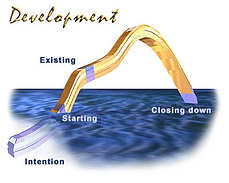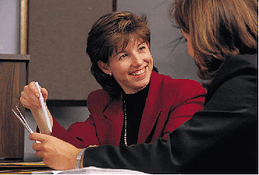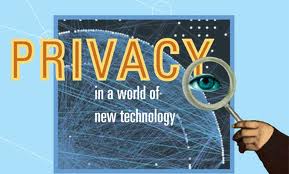
Now that so many people are branding themselves in the employment market, how do you keep from duplicating someone else's brand and how do you keep them from unknowingly mimicking yours?
Say your brand is that you excel as an operations manager at cutting costs through business process redesign. Well, many, many people probably have that value proposition. So what do you do?
Fortunately, since a personal brand is made up of more than the value proposition, you have the opportunity to fill out the picture more. Consider the constellation that makes up a personal brand: key attributes, abilities, signature achievements, core values, value-add skills, commitments, leadership or working style, outside interests and skills, etc. Synthesizing these into a "living, breathing" personal / career identity makes it possible for your personal brand to be truly unique.
The difficulty comes in communicating the complex picture surrounding the core value prop in a succinct way that comes alive on the page and then finding space for it in valuable resume real estate!
BUT! With the possiblities presented by social media, you can present a more complete and nuanced personal brand than is always possible on a resume.
- If you tweet frequently, your followers will start to know you for your style, interests, values, commitments, knowledge, etc.
- LinkedIn offers some opportunities to present the bigger picture with its links to your personal blogsite / Website and to your associations. By participating in Groups on LinkedIn your audience will come to know the way you think and process information as well as the depth and range of your expertise.
- Facebook with its wide array of ways to interact with it can help fill out some of the picture of you socially.
- YouTube videos in which you talk about some aspect of your work can be tremendously powerful and can communicate many of the intangibles of a brand as well as your expertise and personality.
- If you write a blog, you become available to your public in yet another way. Your "voice" is unique. What you care about, think about, and talk about help define you.
We are all dynamic, living personal brands ever evolving. That makes us different from product brands. But it makes it more challenging to fully communicate too!








